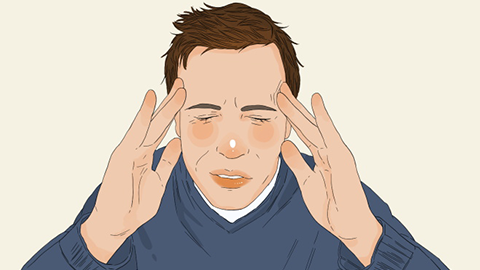How to relieve discomfort after drinking alcohol
Generally, discomfort after drinking refers to a hangover. Hangovers may be caused by alcohol irritation, dehydration, electrolyte imbalance, insulin resistance, increased liver burden, and other factors. It is recommended to seek timely medical consultation, identify the underlying cause, and then alleviate symptoms through general treatment and medication under the guidance of a professional physician. A detailed explanation is as follows:

1. Alcohol irritation
As an irritant beverage, alcohol directly affects the gastric mucosa upon consumption, damaging the mucosal barrier and increasing gastric acid secretion, which can lead to discomfort symptoms such as stomach pain and burning sensation after a hangover. Nausea, vomiting, and acid reflux may also occur. Drinking warm water or honey water in appropriate amounts can help dilute the alcohol concentration in the stomach and reduce irritation to the gastric mucosa.
2. Dehydration
Alcohol acts as a diuretic, increasing urine output and causing fluid loss, which can easily lead to dehydration. Symptoms may include thirst, dark-colored urine, fatigue, and dizziness. It is recommended to adequately replenish fluids after a hangover. Drinking electrolyte-containing beverages such as coconut water or sports drinks can help restore body fluids and electrolytes.
3. Electrolyte imbalance
After a hangover, vomiting, diarrhea, and other factors may cause loss of electrolytes, leading to imbalances such as hypokalemia or hyponatremia, which can result in discomfort. Symptoms may include muscle weakness, cramps, and arrhythmia. Based on electrolyte test results, follow your physician's instructions to replenish specific electrolytes—for example, potassium chloride sustained-release tablets, lomefloxacin hydrochloride and sodium chloride injection, ferrous sulfate tablets, etc. At the same time, rest and avoid strenuous exercise.
4. Insulin resistance
After alcohol consumption, the liver prioritizes metabolizing alcohol while suppressing carbohydrate metabolism, which may temporarily elevate blood glucose levels. Frequent alcohol consumption may lead to insulin resistance and associated discomfort. Symptoms may include hunger, fatigue, and weight fluctuations. It is recommended to maintain healthy eating habits and avoid excessive intake of high-sugar foods. Regular blood glucose monitoring is advised, and when necessary, consult a doctor for dietary adjustments or medical treatment.
5. Liver burden
Since alcohol is primarily metabolized in the liver, excessive drinking increases the liver's workload, impairing its normal function and causing post-hangover discomfort. Symptoms may include loss of appetite, jaundice, and ascites. It is recommended to limit alcohol consumption and avoid excessive drinking. Maintain a healthy lifestyle with balanced nutrition and moderate exercise. Regular liver function tests should be conducted to detect and treat liver problems promptly.
It is recommended to maintain good living and dietary habits in daily life, avoid strenuous exercise, and reduce alcohol consumption.








